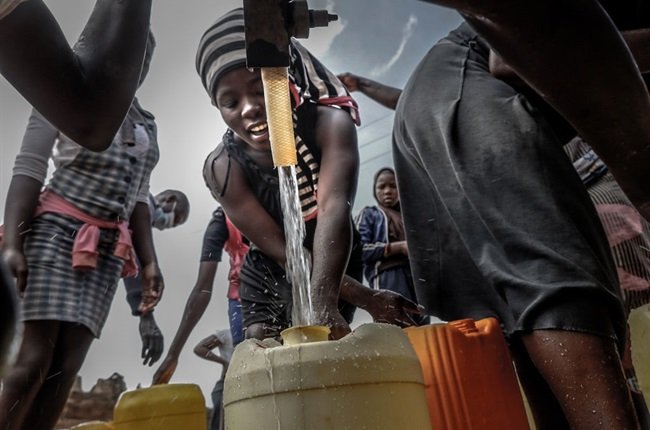Low rainfall has pushed southern Madagascar, south-western Angola, north-western Namibia, Mozambique and Zimbabwe further into food insecurity.
As such, governments are moving ahead with plans to open avenues for maize imports, in order to alleviate hunger.
In Zimbabwe, where food security has a direct link to politics, as the country prepares for by-elections at the end of March, the ruling Zanu-PF party, last week said no one will starve.
After a government meeting on Tuesday, Zimbabwe’s information minister, Monica Mutsvangwa, said the country’s cropping season had been negatively affected by climate change.
“Cabinet wishes to advise the nation that, overall, the first-round crop and livestock survey confirmed that climate change is upon us and affecting agricultural production,” she said.
Last year, Zimbabwe produced 2.8 million tonnes of maize against an annual consumption of 1.8 million tonnes. With little reserves in place, the government in February opened up for maize imports.
According to last week’s Food Security Early Warning System (FEWS NET), the dry spell in southern Africa will continue well into March or signal an end to the rainy season, resulting in “crops wilting and reduction in production prospects in many areas. Permanent wilting and crop moisture stress have already been noted in Mozambique and Zimbabwe”
In south-western Angola, 1.58 million people are facing acute levels of food insecurity.
The European Civil Protection and Humanitarian Aid Operations said almost half a million children will face malnutrition this year.
“In 2022, 400 000 children are projected to be acutely malnourished. The prevalence of global acute malnutrition in some provinces is already above emergency thresholds,” the organisation said.
Affected Angolans are migrating to the northern parts of Namibia, where they are housed in refugee camps.
FEWS NET, in its periodical analysis, said below-average rainfall in southern Mozambique is expected to result in a poor to failed harvest.
Areas that experienced floods have a chance to recover through post-flood production if they have enough seeds to replant. As for Cabo Delgado and Niassa, “conflict-affected areas are expected to remain in crisis, with areas receiving regular humanitarian food assistance likely to remain stressed”.
Meanwhile, on 15 March, the Institute for Security Studies in Africa (ISS Africa) is hosting a webinar, titled “What is Southern Africa’s plan for the climate crisis?”


